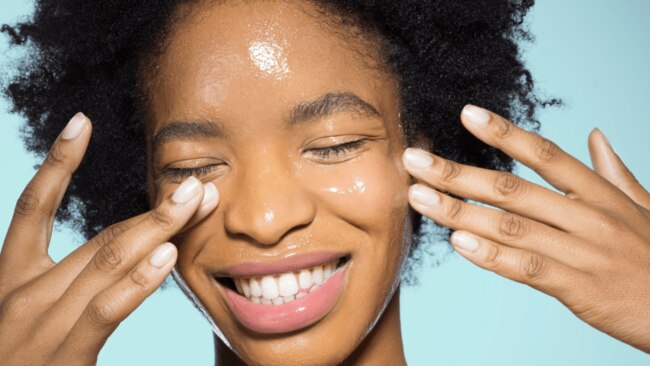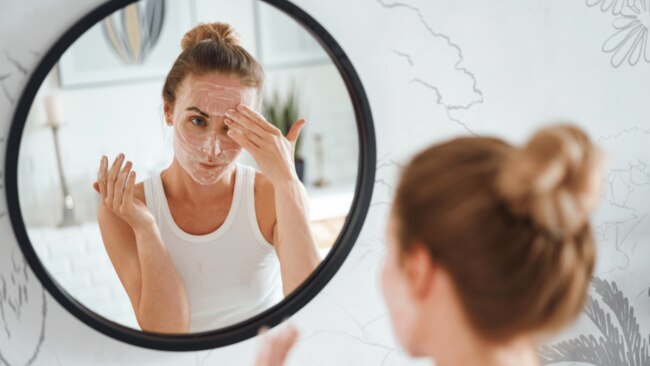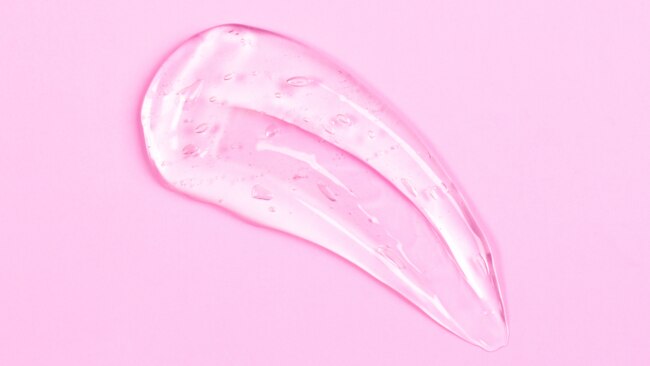Is slugging actually making your skin lazy?
Maybe it’s quite aptly named

Lifestyle
Don't miss out on the headlines from Lifestyle. Followed categories will be added to My News.
Slugging has been around for a while now, inspiring plenty of people to invest in a vaseline tub (or two). But is this trend actually the best way to lock in our skin’s moisture, or is it doing more harm than good?
I’m all for affordable beauty trends that can easily be replicated at home. Glowing skin shouldn’t be reserved for those who can afford monthly facials and the top tier skin care brands. We all have skin, and we all want it to look, and feel, its best.
But to me, the thought of lathering my face with a noticeable coat of vaseline goes against every skin-instinct I have. While I'll do almost anything to keep my skin plump and hydrated, the whole slugging trend seems like a short cut. And if I’ve learned anything from my time on this earth, it's that short cuts rarely deliver the best results, especially when it comes to skin.
So I asked an expert, Yadira Cauchi, to break down exactly if, when, and how, someone should turn to slugging for hydrated skin.
Like what you see? Sign up to our bodyandsoul.com.au newsletter for more stories like this.
A quick slugging recap
Whether or not you’ve tried slugging, or have found yourself on a deep TikTok dive watching people document their own attempts, you’re probably familiar with the concept. Slugging has been around for years, quite literally epitomising the importance of locking in our skin’s moisture, something skin therapists have been preaching for decades.
“Slugging is a skincare trend that basically involves sleeping in a thin layer of an occlusive product onto the skin to prevent transepidermal water loss, lessen skin tightness, and help to deeply moisturise,” explains Cauchi, a Canberra-based dermal therapist.
It’s not a one-size-fits-all fix
Slugging is revered as one of the most efficient techniques to lock in your skin’s moisture overnight. But is this ironclad coat of product actually doing more harm than good?
Even though she acknowledges the skin benefits slugging correctly can promote, Cauchi wouldn’t recommend the hydrating technique to every skin type.
While the intense overnight hydration might indeed help those with drier skin types, many might find the technique far too occlusive, she explains.
“I wouldn't be recommending this trend for anyone with oily or acne prone skin as it could lead to more clogged pores and potentially make acne worse,” Cauchi shares. “People with acne tend to have an excess of sebum and bacteria in their pores and unless you make sure it's completely clear, you could be trapping all that junk in your pores with a thick occlusive on top.”
Cauchi also urges anyone looking to try slugging to be mindful they aren’t applying potentially irritating active ingredients underneath the occlusive, such as other serums and treatments in your nightly routine.
Designed to lock in the skin's moisture (and layers of product underneath), slugging can enhance the penetration of active ingredients to a level your skin may not be used to.

Will too much slugging make our skin lazy?
It’s perfectly normal for our skin to undergo a degree of transepidermal water loss overnight, in fact, it’s actually a healthy bodily function that shouldn’t be avoided completely, says Cauchi.
But, the dermal therapist says that unless you’re constantly slugging your face and using too much occlusive product, the technique shouldn't permanently change our skin’s natural functions.
“Some dermatologists have suggested slugging too much can potentially trigger the skin to stop producing its own lipids, but you would have to be chronically slugging,” Cauchi explains. “Chronically slugging may stop your skin from self-hydrating and moisturising on its own.”

If you’re worried slugging might not be the hydrating technique for you, Cauchi says there’s plenty of other ways to achieve glowing skin. She recommends using a regular thicker moisturiser as the final step in your PM skincare routine.
“A well-formulated moisturiser tends to have all three essential components, including humectants, emollients and occlusives, so that is what I would be reaching for,” she says.
“Your skin needs hydration from the humectants, all the locked-in moisture from occlusives and skin barrier support from the emollients to stay healthy.”
And like any new product or technique, it’s important to do your research before lathering up. While Slugging done correctly (using just a peas-size amount of product every now and then) won’t necessarily make your skin lazy, it could still possibly cause your skin to react or breakout.
It’s always a good idea to consult with a dermatologist or skin therapist before trying any new products, or at the very least start with a test patch.
More Coverage
Originally published as Is slugging actually making your skin lazy?




